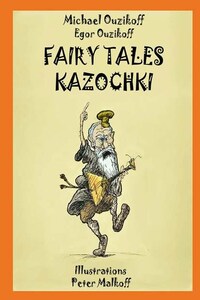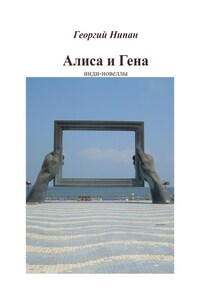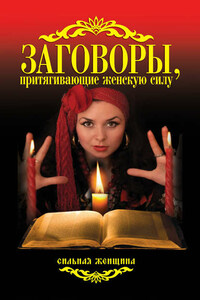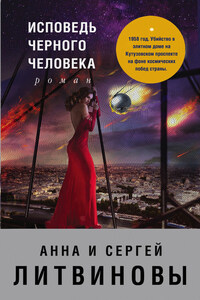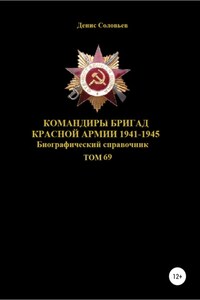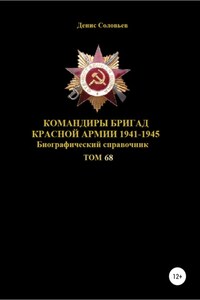© Michael Ouzikov, 2017
© Egor Ouzikov, 2017
© Michael Ouzikov, перевод, 2017
© Egor Ouzikov, перевод, 2017
© Croft Lara, дизайн обложки, 2017
© Peter Malkov, иллюстрации, 2017
Редактор Egor Ouzikov
ISBN 978-5-4483-7466-1
Создано в интеллектуальной издательской системе Ridero
To my children – Egor and Stephanie
«Count Lev Tolstoy
loved children a lot…»
Daniel Harms
Mother bought a bucket of plums and wanted to give them to the children in the afternoon.
Mother never ate plums before in her life and smelt them constantly. And she liked them. She really wanted to eat them.
When there was no one else in the room, she would not resist herself and ate the whole bucket.
At dinner, father asked, «Children, did anyone eat the plums?»
The children answered, «No.»
Then father said, «If any of you ate them – that’s not good of course, but not a trouble. The trouble is that plums have stones, and if someone does not know how to eat them and swallows the stone, then this person will die. That’s what I’m afraid of.»
Everyone laughed, but mother began to cry.
And next morning father died.
There was a house on fire. No one could enter it, and honestly, wouldn’t even want to.
A soldier came over and said: «I’ll go.»
He was told: «You will burn.»
The soldier said: «One can’t die twice, and can’t escape once…»
And he ran into the house…
In fact, he was an extraordinary youth.
You wouldn’t understand them, the Slavs.
The Lion and the dog
(A true story)
Once upon a time in London*, they showed wild animals and took dogs and cats instead of money for watching.
The dogs and cats were used as feed for the wild animals.
One man wanted to look at the animals, so he grabbed a little dog on the street and brought it to the show.
He was admitted to watch and the little dog he picked up was thrown into the lion cage to be devoured. The dog dropped its tail between its legs and clung to the corner of the cage.
The lion came over and sniffed her.
The doggie squealed.
The she lay on her back, lifted her feet and began waving her tail.
The lion touched her with his paw, and flipped her over.
The doggie squealed.
They got married…
The doggie squealed.
Next morning, the doggie croaked and the lion’s lymph nodes began to swell.
* London is the capital of Great Britain
An eagle built a nest in a big tree, away from the sea and broughtforth little children-eagles.
Once, some people began to work beside the tree and the eagle flew up to the nest with a large fish in its talons.
The people saw a fish and surrounded the tree. They started shouting and throwing stones at the eagle.
The people were Georgians.
The eagle dropped the fish, and the Georgians picked it up, poured themselves some sweet wine and shouted a toast:
«Eagle fly very high in the sky. Fish swim at the bottom of deepest gorge. So let’s drink to that!»
There once was a boy named Philip. The time came for all the boys to go serve in the army. Philip did not want to go. But his mother said to him: «Philip, you’re not going to the army?»
«No.»
«For you to not go to the army, you must have a disabled wife.»
The boys went to serve in the army. Philip’s father went early in the morning to the forest for his daily work. And Philip went and got married. He married his wife, and said:
«So, dear wife, you do not want me to go to the army?»
«Of course I don’t want you to.»
«Then go and get your leg cut off by a train».
The wife went to the railway station and got not just one leg cut off by a train, but her second leg as well.
She came home and Philip asked:
«Well, how are you, dear?»
«As you see.»
«Very good,» said Philip, «Who taught you how to do that?»
His wife braved and said:
«I learned myself. I’m daring and I immediately understood. Oh, I’m very nifty.»
The Master and the Rooster
(A true story)
The master did not sleep all night. He drank, engaged in some unethical deeds with the mistress, and even carried sheaves of grain before midnight. Then he lay down to rest directly in the courtyard.
The rooster saw his master and thought, my master wants to hear me sing.
He got closer to the master and shouted in his ear:
«Soldier arise! Scrub the bloody muck out of your eyes. 45 seconds! Parade dress, assemble in the court!»
The master woke up and pushed the rooster who was not allowing him to sleep away. The rooster thought that the master wanted him to sing louder, so he crept closer and began to shout with all his might:
«Get up, son of a bitch! Get up and fight! Is this how you serve?»
The master grabbed a rake and hit the rooster in the head. The rooster saw blinking numbers.
How a Man Shared a Goose
(A fairy tale story)
One smelly man ended up with not a single loaf of bread to bring to his family. He decided to ask for some bread from his laird. Before going to the master, he caught a goose and roasted it in wine sauce with cognac.
The laird accepted the goose and quietly said to the smelly peasant: «I thank you, sweet man. You do your service well. I will eat a fried little goose to relieve my stomach pain. But look here, I don’t know how I will share your goose. I have a beautiful wife, Maria, two sons, and two more daughters to marry off.»
The man was thinking as the time was ticking.
The foul-smelling man finally said: «I know how we can share the goose.»
He took his knife, cut the goose’s head off and told his master: «You are the head of the household – the head is yours.»
He then cut off the tail and gave it to the laird’s wife: «You stay at home,» he said, «You look after the house – the rump is yours.»
The man snapped the legs off and offered them to the sons: «You are the legs, stomping your father’s path.» As for the daughters, he gave them the wings: «You will soon open your wings and fly away from your family home.«The man then announced, and the rest I will take for myself!»
And he took the remainder of the goose. The laird laughed to tears, gave the peasant a loaf of bread and some coins for him to drink to his health.
The smelly man got drunk on vodka and set fire to laird’s mansion.
And so Leo Tolstoy went in his old age to wander across Russia.
The poor fellow was found half-dead at some railway station by other foul-smelling men.
There lived a brother and sister, Vasya and Katya, and they had lice. In the spring, the lice disappeared. The children searched everywhere, but could not find them.
Once they played beside the barn and heard over their heads thethin voice of someone screaming.
Vasya climbed the stairs under the roof of the barn and began looking. Katya stood at the bottom of ladder and asked many times: «Did you find it? Did you find it?»
